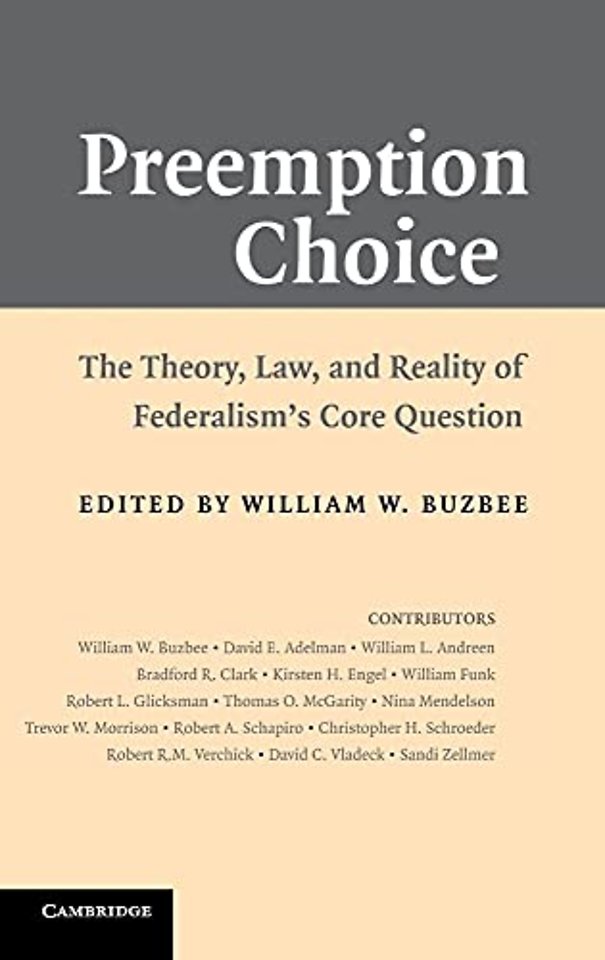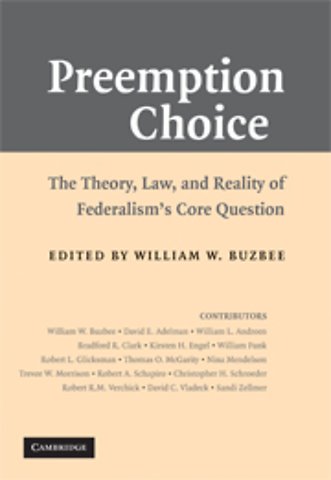Preemption Choice
The Theory, Law, and Reality of Federalism's Core Question
Samenvatting
This book examines the theory, law, and reality of preemption choice. The Constitution's federalist structures protect states' sovereignty but also create a powerful federal government that can preempt and thereby displace the authority of state and local governments and courts to respond to a social challenge. Despite this preemptive power, Congress and agencies have seldom preempted state power. Instead, they typically have embraced concurrent, overlapping power. Recent legislative, agency, and court actions, however, reveal an aggressive use of federal preemption, sometimes even preempting more protective state law. Preemption choice fundamentally involves issues of institutional choice and regulatory design: should federal actors displace or work in conjunction with other legal institutions? This book moves logically through each preemption choice step, ranging from underlying theory to constitutional history, to preemption doctrine, to assessment of when preemptive regimes make sense and when state regulation and common law should retain latitude for dynamism and innovation.
Specificaties
Inhoudsopgave
Net verschenen
Rubrieken
- aanbestedingsrecht
- aansprakelijkheids- en verzekeringsrecht
- accountancy
- algemeen juridisch
- arbeidsrecht
- bank- en effectenrecht
- bestuursrecht
- bouwrecht
- burgerlijk recht en procesrecht
- europees-internationaal recht
- fiscaal recht
- gezondheidsrecht
- insolventierecht
- intellectuele eigendom en ict-recht
- management
- mens en maatschappij
- milieu- en omgevingsrecht
- notarieel recht
- ondernemingsrecht
- pensioenrecht
- personen- en familierecht
- sociale zekerheidsrecht
- staatsrecht
- strafrecht en criminologie
- vastgoed- en huurrecht
- vreemdelingenrecht

